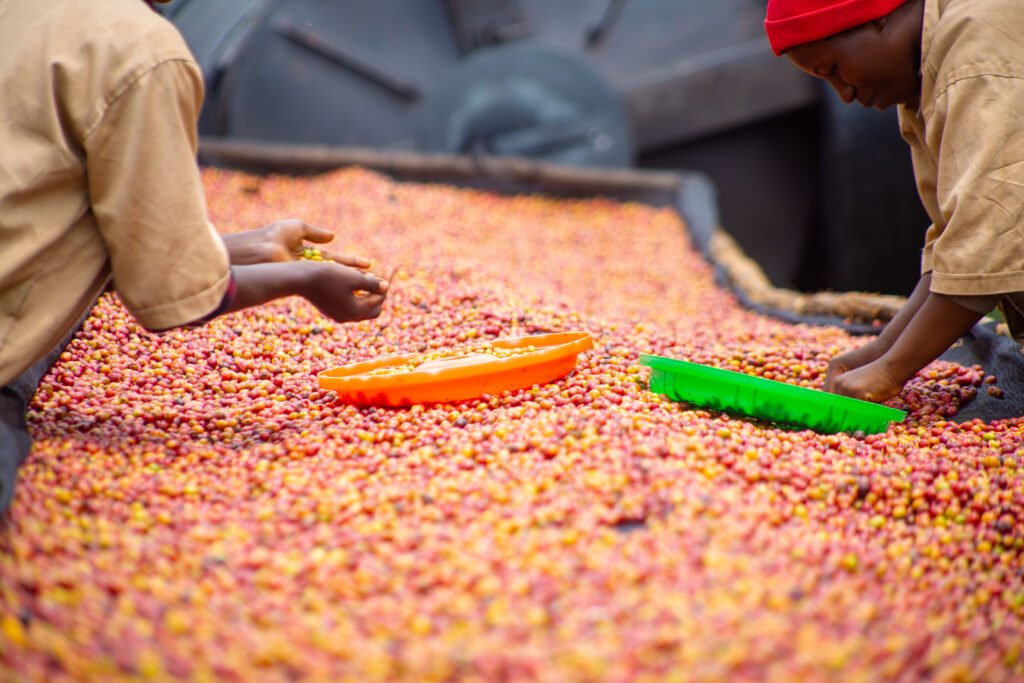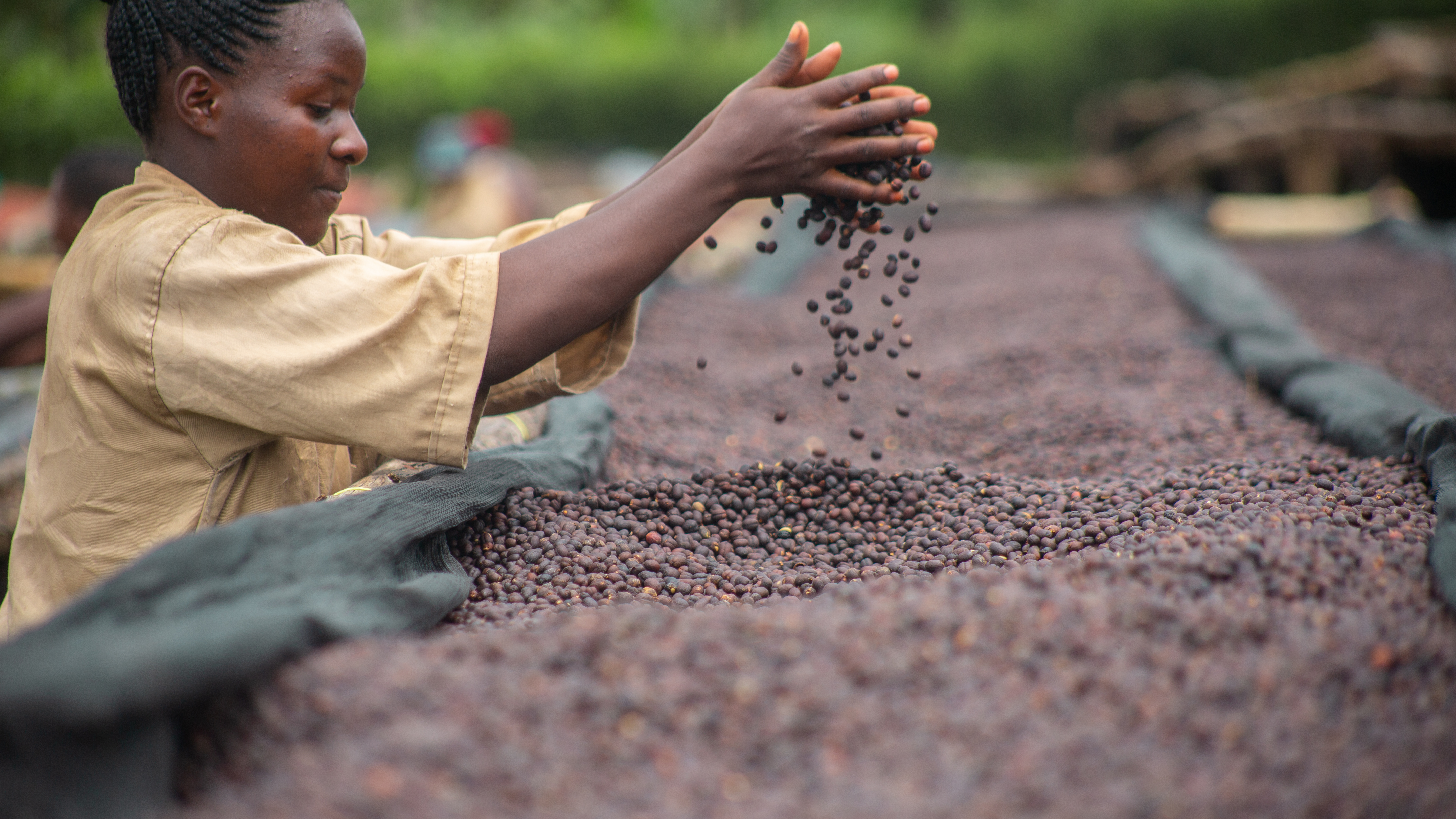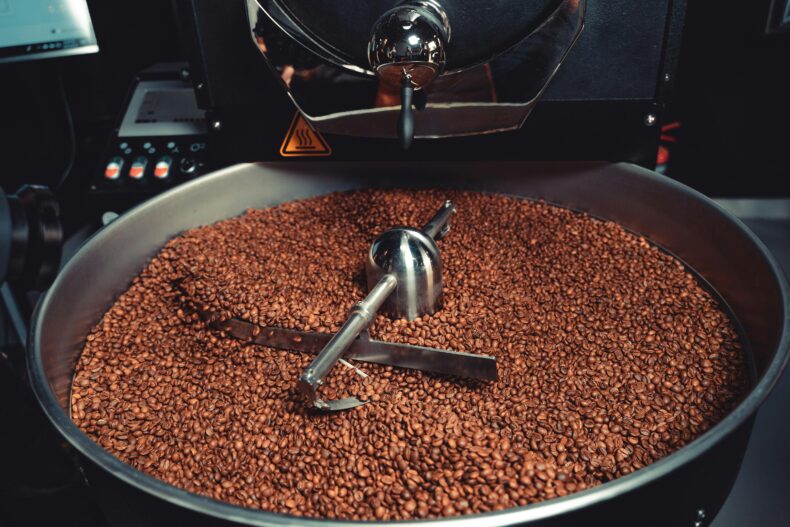
Natural coffee processing is a method of processing coffee beans that involves drying the beans inside the fruit, rather than removing the fruit first. This method of processing is often used in countries with dry climates, such as Brazil,but here at GMAC we also prepare it, where the fruit can be left to dry in the sun. Here’s a breakdown of the natural coffee processing phase from farm until it’s dried:
- Harvesting: Coffee is typically harvested when the fruit is ripe, which can take up to nine months after flowering. The cherries are picked by hand or by machine, depending on the farm’s resources.
- Sorting: After harvesting, the coffee cherries are sorted to remove any overripe, underripe, or damaged fruit.

3.Drying: In natural coffee processing, the cherries are dried with the fruit still intact. This can be done in a few different ways:

4.Fermentation: During the drying process, the cherries ferment, which can give the coffee a unique flavor. The length of fermentation can vary depending on the farm’s preferences, but it typically lasts between one and three days.
5.Hulling: After the coffee beans are dry, the fruit is removed through a process called hulling. This can be done by machine or by hand.
6.Sorting and grading: Once the fruit is removed, the coffee beans are sorted by size and quality. The beans are then graded based on their appearance, flavor, and aroma.
7.Roasting: The final step in the natural coffee processing phase is roasting. Roasting brings out the flavor of the coffee beans and determines the final taste of the coffee.
In conclusion, natural coffee processing is a unique method of processing coffee beans that involves drying the cherries with the fruit still intact. This process can take several weeks and involves several steps, including sorting, drying, fermentation, hulling, and grading. The end result is a coffee bean with a distinct flavor and aroma that is highly prized by coffee connoisseurs around the world.



